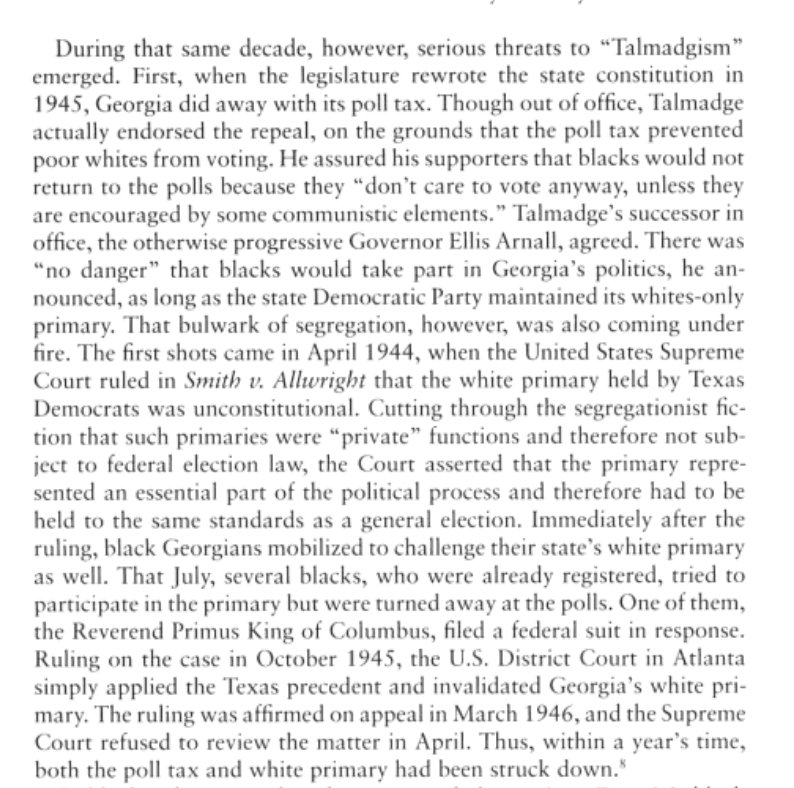@DineshDSouza I wrote a book detailing southern Dems support for segregation and repeatedly noted that obvious fact on Twitter.
You, meanwhile, invented a fake Dixiecrat senator and implied that politicians who died in the 1940s and 1950s were still Democrats in the 1960s. That's #FakeHistory
You, meanwhile, invented a fake Dixiecrat senator and implied that politicians who died in the 1940s and 1950s were still Democrats in the 1960s. That's #FakeHistory
@DineshDSouza If I'm trying to hide the Democrats' racist past as the defenders of segregation, I'm really doing a horrible job.
Here are just a few quick samples from my book.



Here are just a few quick samples from my book.




@DineshDSouza When historians say you're a horrible liar, what they mean is that you're horrible at lying.
Like when you claimed "progressive textbooks" were hiding the "secret" about Democratic support for segregation. All these ones do:
Like when you claimed "progressive textbooks" were hiding the "secret" about Democratic support for segregation. All these ones do:
https://twitter.com/KevinMKruse/status/1024768574701887493
@DineshDSouza I've criticized the Democrats' clearly racist past repeatedly in print, in lectures and on Twitter too. You can pretend otherwise all you want, but that doesn't make it true.
Just because you're a partisan hack with no principles, that doesn't mean your many critics are, too.
Just because you're a partisan hack with no principles, that doesn't mean your many critics are, too.
@DineshDSouza Wow, look at how I hid the secret of Democrats' role as the party of slavery and segregation in this very hidden secret Twitter thread:
https://twitter.com/KevinMKruse/status/991131181444943872
@DineshDSouza Man, here's another instance of my hiding this big secret I don't want anyone to know about:
https://twitter.com/KevinMKruse/status/991131183286243328
@DineshDSouza If you'd taken a single US history course at Dartmouth -- where they do teach this, like everywhere else -- you'd know these basic facts and now sound like an utter moron.
https://twitter.com/KevinMKruse/status/916806309458141184
@DineshDSouza But I'm glad to know you hate people who receive "Get Out of Jail Free" cards.
I'll look forward to your returning Trump's presidential pardon now.
I'll look forward to your returning Trump's presidential pardon now.
• • •
Missing some Tweet in this thread? You can try to
force a refresh




